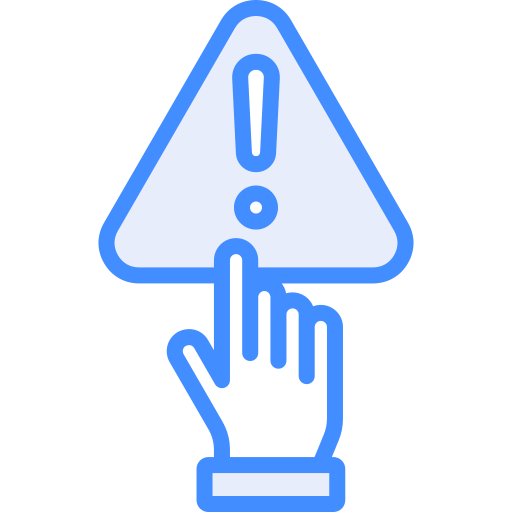Payday Lenders in Virginia
In Virginia, the laws surrounding payday loans have evolved over time to offer more protection to consumers. The 2020 legislation, for example, restricts lenders from charging interest and fees higher than 36% and limits the maximum loan amount to $2,500. However, despite these measures, the state still struggles with predatory lenders, particularly those who operate online and exploit vulnerable individuals.
Payday Loan Laws
- Code Ann. §6.2-1800 is the primary legislation that oversees payday lender operations and sets these limits along with prohibiting rollovers and limiting borrowers to one outstanding loan.

Loan Terms and Conditions
Maximum loan amount: $2500
Maximum Interest Rate: 36%
Minimum loan term: 4 months
Maximum loan term: 2 years
Number of rollovers allowed: none
Finance Charge: 8% monthly or $25 monthly, which ever is less
Legal action: 3 Years
Certified Payday Lenders in Virginia
| Company Name | Company score | License Status |
| Enova International, Inc. | 7.8 | Valid |
| Big Picture Loans, LLC | 7.6 | Valid |
| CNG FINANCIAL CORPORATION | 6.8 | Valid |
| CURO Intermediate Holdings | 6.1 | Valid |
| COMMUNITY CHOICE FINANCIAL, INC. | 5.8 | Valid |
| Delbert Services | 5.1 | Valid |
History of Virginia Payday Loans
How to file a complaint
- ADDRESS
- PO Box 640, Richmond, Virginia 23218
- 804-371-9657
- Website
Virginia Payday Loans Debt Relief
How to Get out of Payday Loan Debt?
Types of Quick Loans in Virginia
Alternatives to Payday Loans in Virginia
Personal Loans
Personal loans can be used for a variety of purposes including debt consolidation, home improvements or medical bills. These loans usually have fixed rates of interest and repayment terms of several months or years. Personal loans are available in Virginia from traditional banks, credit cooperatives and online lenders. Rates and fees for personal loans can be affected by credit scores and other factors.
Land Loans
Land loans in Virginia are secured loans that can be used to buy or refinance land such as residential lots or agricultural land. These loans are considered riskier by lenders, and therefore have shorter repayment terms with higher interest rates. A borrower from Virginia who wants to get a land loan should be ready to make a large down payment, have excellent credit, and have a plan on how they plan to use the land. Banks, credit unions and private lenders offer land loans in Virginia. To facilitate the loan application, borrowers should be prepared with additional documentation such as property surveys.
Home Equity Loans
Home equity loans use the equity in a borrower's house as collateral. Since they are backed by collateral, these loans have lower interest rate than other types of loans. Virginia homeowners are able to borrow up 80% of the equity in their home, depending on who is lending and how creditworthy the borrower is. These loans can be used to pay for home renovations, education costs, medical expenses, and other purposes. Before applying, the borrower should carefully consider the risks of using their home as collateral.
Bad Credit Loans in Virginia
Virginia bad credit loans are designed for borrowers with low credit scores or a limited credit history. Because of the increased risk, lenders will charge higher rates and fees for these kinds of loans. The amount borrowed can also be lower. Secured and unsecured bad credit loans are both available. Secured loans require collateral such as a car or a savings account. Before borrowing, Virginia residents with poor credit ratings are encouraged to do thorough research, compare fees and terms from various lenders. The proper evaluation of loan conditions, timely payments and responsible credit use can help to rebuild credit scores.
Virginia Small Business Loans
There are several types of small business loans available in Virginia, including:
- SBA loans: Loans that are partially guaranteed by the U.S. Small Business Administration and are designed to help small businesses access capital and obtain favorable loan terms.
- Business lines of credit: A flexible borrowing option that gives businesses access to funds as they are needed. Interest is only paid on the amount borrowed.
- Virginia Small Business Financing Authority (VSBFA) Loans: VSBFA offers a range of loan programs to help small businesses in Virginia, including loans for startups, working capital, and equipment purchases.
- Invoice financing: A financing option that allows businesses to receive an advance on their unpaid invoices, with repayment once the invoice is paid.
- Community Development Financial Institutions (CDFIs): CDFIs are specialized lenders that offer loans to underserved communities and small businesses in Virginia.
VA loans in Virginia
The VA loan is a government-backed mortgage that offers many benefits to veterans, servicemen, and their spouses who are living in Virginia. These loans allow these individuals to buy a primary home, such as single-family houses, townhouses and condominiums. VA loans offer the opportunity to finance 100% of a home's worth without requiring a down payment. VA loans in Virginia do not require mortgage insurance. This can save borrowers thousands over the course of their loan. The VA has specific requirements for eligibility, including military service, income, and credit scores.
Virginia Student Loans
Many options are available to Virginia students to help finance their college education. These options include:
Virginia Income Information
United States Census Bureau. “Poverty in the United States: 2021.” Accessed on May 1, 2023.
United States Census Bureau. U.S. Census Bureau QuickFacts: Virginia. Accessed on May 1, 2023.
Virginia Payday Lender Complaints
| Company Name | Count |
| Enova International, Inc. | 116 |
| Big Picture Loans, LLC | 26 |
| CNG FINANCIAL CORPORATION | 23 |
| CURO Intermediate Holdings | 19 |
| COMMUNITY CHOICE FINANCIAL, INC. | 19 |
| Delbert Services | 17 |
| Total Complaints | 433 |
Consumer Financial Protection Bureau. Consumer Complaint Database. Accessed on May 1, 2023.
Most Common Issues
| Complaint type | Count |
| Unexpected fees or interest | 185 |
| Can’t stop withdrawals from bank | 43 |
| Struggling to pay loan | 43 |
| Can’t contact lender | 30 |
| Received a loan never applied for | 27 |
What are the main reasons residents of Virginia apply for payday cash advance online or offline
Payday loans are typically used for nonnegotiable everyday expenses like your rent, utilities, and groceries. Per data reported by Pewtrust, the percentage of reasons described below
| Reason | Share |
| Regular Expenses (Utilities, car payment) | 53% |
| Unexpected emergency/expense | 16% |
| Rent/Mortgage | 10% |
| Something Special | 8% |
| Other | 5% |
| Did not answer | 2% |
Payday Lenders by City
- Virginia Beach
- Chesapeake
- Norfolk
- Arlington
- Richmond
- Newport News
- Alexandria
- Hampton
- Roanoke
- Portsmouth
- Suffolk
- Lynchburg
- Dale City
- Centreville
- Reston
- Harrisonburg
- McLean
- Leesburg
- Tuckahoe
- Charlottesville
- Ashburn
- Lake Ridge
- Blacksburg
- Burke
- Woodbridge
- Manassas
- Danville
- Linton Hall
- Annandale
- Mechanicsville



